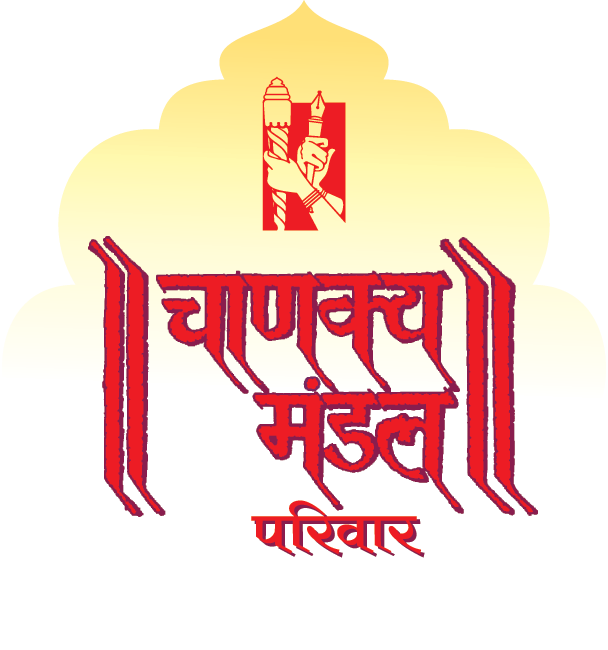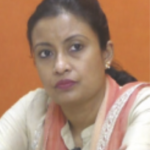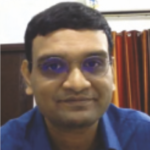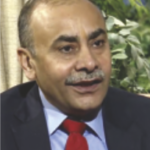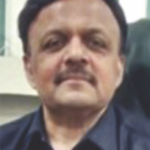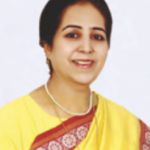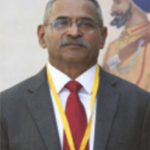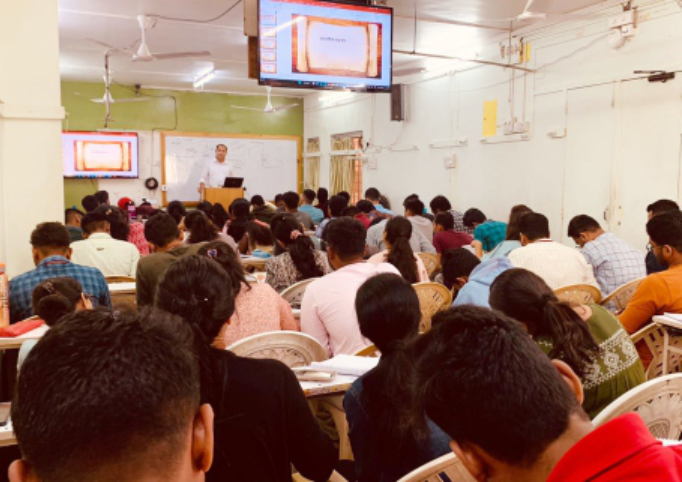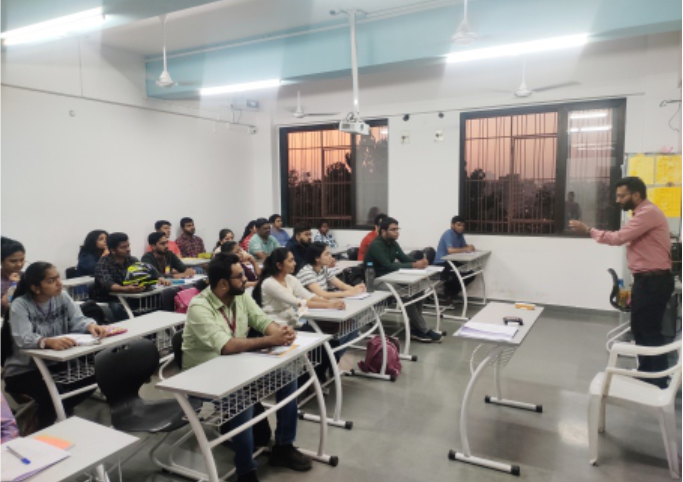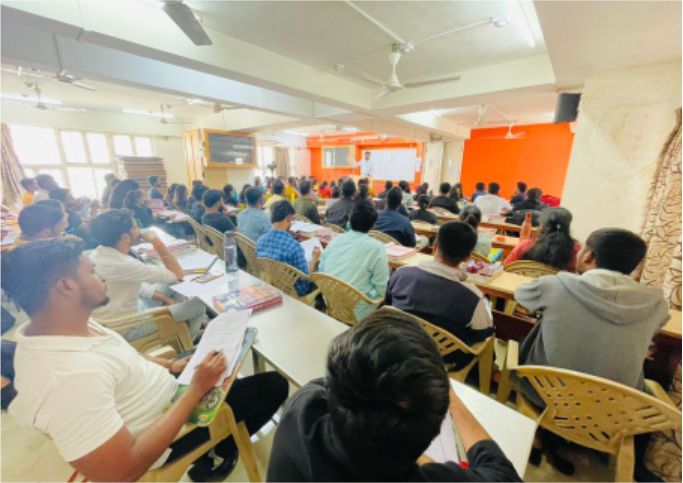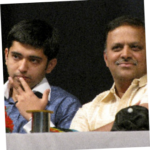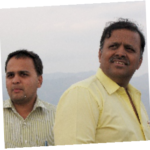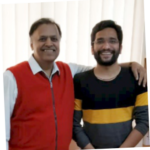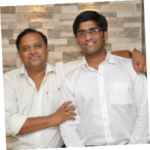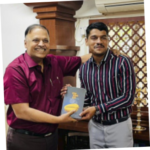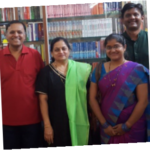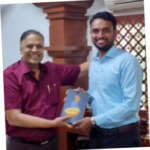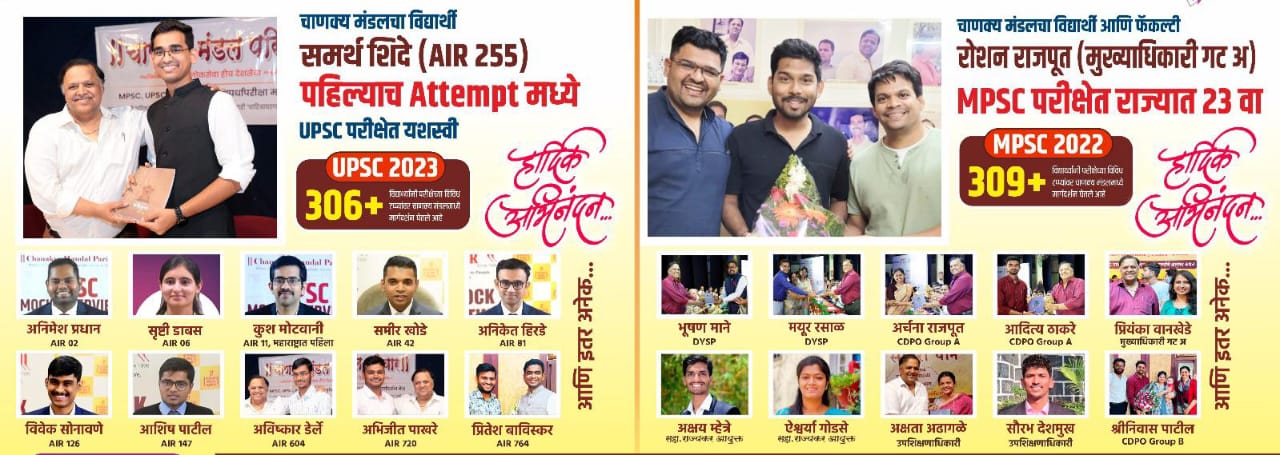All batches follow a “Module Pattern” of teaching. So what is “Module Pattern”
Introduction to our UPSC course
Are you aspiring to become a civil servant and serve the nation with dedication and excellence? Look no further! Chanakya Mandal Pariwar proudly presents its flagship UPSC Comprehensive Course, a comprehensive and specialized program designed to equip you with the knowledge, skills, and strategy required to crack the prestigious UPSC Civil Services Examination.
Features of the UPSC Comprehensive Course
Thorough Coverage:
Our expert faculty ensures in-depth coverage of the UPSC syllabus, including all subjects and topics essential for the Preliminary and Main examinations.
Mock Tests & Assessments:
Regular mock tests and evaluations simulate real exam conditions, helping you gauge your progress and identify areas of improvement.
Personalized Guidance:
Benefit from personalized guidance and one-on-one interactions with our experienced mentors to address your doubts and concerns effectively.
Interview Preparation:
Our interview preparation module hones your communication and interview skills, boosting your confidence for the crucial UPSC Personality Test.
Study Materials:
Access to comprehensive study materials, notes, and reference materials that cover the entire UPSC syllabus, making your preparation more structured and effective.
Strategy & Time Management:
Learn effective exam strategies and time management techniques to maximize your performance in the limited time available.
Course Start:
Sadashiv Peth (Pune)
14 Aug 2024
Warje (Pune)
14 Aug 2024
Sion (Mumbai)
16 Aug 2024
Chhatrapati Sambhajinagar
25 June 2024
Online batch
14 Aug 2024
UPSC English Medium Batch Starts From- 22 July 2024
Module Pattern
- Module pattern means subtopics of General Studies are taken one by one and a complete guide for that particular subtopic is completed continuously without breaking or interrupting the flow of the subject. Notes for that particular subtopic are also given at the same time and after completion of teaching a practice test is also conducted. Thus, this pattern ensures that each subtopic is concretely imprinted on the student’s mind. Excluding the subjects which are your degree subjects, all other subtopics are unknown and new for you. Only if you take up these subjects one by one and learn them in an uninterrupted manner, can you master them? It is our experience that this pattern proves very useful.
But, in this pattern it is obvious and unavoidable that some subjects will have to be taught towards the end of the course. Sometimes some students are afraid of the fact that we are approaching the end of the course and not a single lecture has been conducted for a particular subject. But this is not at all something to be afraid of, because every subject is going to be taught as per its sequence. On the contrary, the subjects which will be taught in the end are taught to you just before the exam and remain fresh in your mind. It is also our experience that if students adjust their self-study timetable with the classes they are benefited even more.
UPSC Examination, being one the most competitive exams in India, and perhaps the world, they require sustained efforts and systematic preparation.
- Competition: Lacs of candidates appear for these examinations from all over India, and only about a thousand can get success. And it is, therefore, absolutely necessary to face them with thorough preparedness.
- Vast syllabus: It requires understanding of many subjects starting from History, Art and culture to recent events, science and technology, etc.
Through this exam, candidates are selected for following 19 services:
(i) Indian Administrative Service
(ii) Indian Foreign Service
(iii) Indian Police Service
(iv) Indian Audit and Accounts Service, Group ‘A’
(v) Indian Civil Accounts Service, Group ‘A’
(vi) Indian Corporate Law Service, Group ‘A’
(vii) Indian Defence Accounts Service, Group ‘A’
(viii) Indian Defence Estates Service, Group ‘A
(ix) Indian Information Service, Junior Grade Group ‘A’
(x) Indian Postal Service, Group ‘A’
(xi) Indian P&T Accounts and Finance Service, Group ‘A’
(xii) Indian Railway Protection Force Service, Group ‘A’
(xiii) Indian Revenue Service (Customs & Indirect Taxes)
Group ‘A’
(xiv) Indian Revenue Service (Income Tax) Group ‘A’
(xv) Indian Trade Service, Group ‘A’ (Grade III)
(xvi) Armed Forces Headquarters Civil Service, Group ‘B’ (Section Officer’s Grade)
(xvii) Delhi, Andaman and Nicobar Islands, Lakshadweep, Daman & Diu and Dadra &
Nagar Haveli Civil Service (DANICS), Group ‘B’
(xviii) Delhi, Andaman and Nicobar Islands, Lakshadweep, Daman & Diu and Dadra &
Nagar Haveli Police Service (DANIPS), Group ‘B’
(xix) Pondicherry Civil Service (PONDICS), Group ‘B’
Ministry of Railways, in consultation with UPSC and the Department of Personnel Training, has decided that recruitment to the Indian Railway Management Service (IRMS) to be conducted from the year 2023 will be done through a specially designed examination (IRMS Examination) by UPSC.
IRMSE will be a two-stage examination – Preliminary Screening Examination, followed by
Main Written Examination and Interview. In order to screen a suitable number of candidates for the second stage of examination i.e. IRMS (Main) written examination, all eligible candidates will be required to appear in the Civil Services (Preliminary) Examination and a suitable number of candidates will be screened for the IRMS (Main) Examination.
- Age : (As counted on 1st August of the year of Prelims stage of your exam)
| Category | Minimum Age | Maximum Age |
| General | 21 | 32 Years |
| SC/ST | 21 | 37 years |
| OBC | 21 | 35 Years |
- Educational Qualification : Any degree from any of the recognized universities.
- Are candidates appearing for last year exam who are awaiting results eligible? Yes. They will need to submit of passing he exam at the time applying for Mains Exam after Prelims results are declared.
- Number of attempts
| Category | Maximum no. of attempts |
| General | 6 |
| SC/ST | No restriction |
| OBC | 9 |
A combined examination for civil services(for recruitment to IAS,IPS,IFS and other group services) is held once a year in 3 stages: Preliminary, Main Examinations, Personality Test.
- Step 1 – Preliminary Examination
- Step 2 – Main Examination
- Step 3 – Interview
| Paper | Duration | Subject | No. of Questions | Marks | Each Correct Answer | Each Incorrect Answer |
| Paper 1 | 2 hours | General Studies | 100 | 200 | 2 | -0.66 |
| Paper II | 2 hours | CSAT | 80 | 200 | 2.5 | -0.82 |
Both the papers are of MCQ (Multiple Choice Questions) type
Paper 1 – Syllabus
- Current events of national and international importance
- History of India and Indian National Movement
- Indian and World Geography-Physical, Social, Economic Geography of India and the world
- Indian policy and Governance-Constitution, Political System, Pachayat raj, Public Policy, Right Issues, Etc.
- Economic and social development-Sustainable Development, Poverty
- Inclusion, Demographics, Social Sector Initiatives, etc
- General issues on Environmental Ecology, Bio-diversity and climate change-that do not require subject specialization
- General Science
Paper 2 – Syllabus
- Comprehension
- Interpersonal Skills including communication skills
- Logical reasoning and analytical ability
- Decision making and problem solving
- General mental ability
- Basic numeracy (numbers and their relations, orders of magnitude, etc.) (Class x level), Data interpretation (Charts, graphs,tables,data sufficiency etc.-Class X level)
In Prelims, Marks scored in Paper 1 are considered while deciding cut-off for candidates to be eligible for Mains stage of the exam. General trend of cut off for last few years for your reference: (2019 cut off marks will be declared officially by UPSC after declaration of final results)
Year wise cut-off marks (Out of 200)
| Year | Gen | OBC | SC | ST | PH1 | PH2 | PH3 |
| 2018 | 98 | 96.66 | 84 | 83.34 | 73.34 | 53.34 | 40.00 |
| 2019 | 98 | 95.34 | 82.00 | 77.34 | 53.34 | 44.66 | 40.66 |
| 2020 | 92.51 | 89.12 | 74.84 | 68.71 | 70.06 | 63.94 | 40.82 |
| 2021 | 87.54 | 84.85 | 75.41 | 70.71 | 68.02 | 67.33 | 43.09 |
Marks in Paper II CSAT are only qualifying in nature in which candidate is expected score minimum 33% percent marks, failing which he/she won’t be eligible for mains, even if he/she has scored marks above cut-off in Paper 1.
When is Prelims Exam conducted ?
It is generally conducted in the month of May/June.For your reference, below are the dates of UPSC Prelims Exam in recent history:
| Year | Prelims Exam Date |
| 2018 | 3rd June |
| 2019 | 2nd June |
| 2020 | 4 October |
| 2021 | 10 October |
| 2022 | 5th June |
2023 Prelims Exam Date : 28 May 2023
Where is Prelims Exam conducted ?
In India, it is conducted across 72 centres. In Maharashtra Prelims examination is held at Mumbai, Pune, Navi Mumbai, Thane, Nagpur and Aurangabad. (For other centres in India, please check the UPSC notification page no. 8 onwards on
https://www.upsc.gov.in/sites/default/files/Notif-CSP-22-engl-020222F.pdf
Can I refer to Previous Year Question Papers ?
Yes, the question papers are available for free download at
https://upsc.gov.in/examinations/previous-question-papers
You need to search for Preliminary Exam Question Papers of Civil Services
When are the prelims results usually declared ?
It is generally announced in 40-45 days from the Prelims Exam. See the trend below:
| Year | Gap between Prelims Exam and Result declaration |
| 2018 | 41 days |
| 2019 | 40 days |
| 2020 | 20 days |
| 2021 | 19 days |
| 2022 | 17 days |
Only those candidates who are declared by the UPSC to have qualified in the Preliminary Examination in a year are eligible for admission to the Main Examination of that year. Those who have hope to get qualified in the Prelims should start preparing immediately
UPSC MAIN EXAMINATION Qualifying Papers
| Paper A | Any Indian language mentioned in schedule 8 of Indian constitution | 300 marks |
| Paper B | English | 300 marks |
The above papers (A and B) are of qualifying nature. Essay, General Studies and Optional Subject of only such candidates will be taken cognizance who attain 25% marks in Paper A and B as minimum qualifying standards.
MARKS OF PAPERS MENTIONED BELOW ARE COUNTED IN THE FINAL RESULT
| Paper I | Essay | 250 marks |
| Paper II | General Studies Papers I | 250 marks |
| Paper III | General Studies Papers II | 250 marks |
| paper IV | General Studies Papers III | 250 marks |
| Paper V | General Studies Paper IV | 250 marks |
| Paper VI | Optional Subject Papers I | 250 marks |
| Paper VII | Optional Subject Papers II | 250 marks |
What is the syllabus for Mains Examination?
Essay Paper (250 Marks)
Candidates may be required to write essays on multiple topics. They will be expected to keep closely to the subject of the essay to arrange their ideas in orderly fashion, and to write concisely. Credit will be given for effective and exact expression.
General Studies-I 250 marks
Indian Heritage and Culture, History and Geography of the World and Society.
- Indian culture from ancient to modern times.
- Modern Indian history – events, persons, issues.
- The Freedom Struggle
- Post-independence consolidation
- History of the world
- Salient features of Indian Society, Diversity of India.
- Role of women, poverty, urbanization, problems
- Effects of globalization on Indian society
- Social empowerment, communalism, regionalism & secularism.
- World’s physical geography, natural resources
- Important Geophysical phenomena – earthquakes, Tsunami, Volcanic activity, cyclone etc.
General Studies-II 250 marks
Governance, Constitution, Polity, Social Justice and International relations.
- Indian Constitution -Functions of Union & States
- Separation of powers & comparison of the Indian constitutional scheme with other countries
- Legislatures, Executive, Judiciary, pressure groups & Polity. Constitutional posts & Bodies.
- Representation of People’s Act.
- Statutory, regulatory & quasi-judicial bodies
Government policies, development, NGOs - Welfare sch., Health, Education, HR, Poverty
- Citizens charters, transparency & accountability
- Role of civil services in a democracy.
- India & neighbors – Bilateral, regional & global groupings affecting India’s interests
- Politics of developed and developing countries
- Important International institutions, agencies
General Studies-III 250 marks
Technology, Eco. Development, Bio diversity, Environment, Security & Disaster Management
- Indian Economy, Growth, Gov. Budgeting.
- Cropping patterns, irrigation, storage, transport
- Farm subsidies, Public Distribution System
- Food processing industries, supply chain
- Land reforms in India, Effects of liberalization
- Infrastructure: Energy, Ports, Roads, Air-Raile
- Investment models, Science and Technology
- New technology, IT, Space, Computers, nanotech,bio-tech, intellectual property rights.
- Conservation, pollution, disaster & mgmt
- Linkages between development and extremism
- Role of external state and non-state actors in creating challenges to internal security.
- Networks, media, cyber-secu., moneylaundering
- Terrorism and security forces
General Studies-IV 250 marks
Ethics, Integrity & Aptitude (Case studies)
- Ethics & Human Interface: Values, teachings of great leaders, reformers and administrators; role of family, society & educational institutions Attitude: moral & political attitudes; social influence and persuasion.
- Aptitude – values for Civil Service
- Emotional intelligence in administration
- Moral thinkers and philosophers
- Ethical concerns & dilemmas in government, laws, rules, funding, accountability, ethical issues in international relations
- Probity in Governance: Philosophical basis, transparency, Right to Information, Codes of Conduct, Citizen’s Charters, Work culture, Quality of service delivery, Utilization of public funds, challenges of corruption.
- Agriculture
- Anthropology
- Botany
- Physics Animal
- Husbandry and
- Veterinary Science
- Chemistry Civil
- Engineering
- Commerce and
- Accountancy
- Economics
- Electrical Engineering
- Geography
- Geology
- History
- Law
- Management
- Mathematics
- Psychology
- Medical Science
- Mechanical Engineering
- Philosophy
- Public Administration
- Political Science and International Relations
- Sociology
- Statistics
- Zoology
Literature of Languages
- Assamese
- Bodo
- Bengali
- Dogari
- Gujrati
- Hindi
- Kannada
- Kashmiri
- Konkani
- Maithili
- Malyalam
- Manipuri
- Marathi
- Nepali
- Oriya
- Punjabi
- Sanskrit
- Santhali
- Sindhi
- Tamil
- Telugu
- Urdu
- English
For the syllabus of various Optional Subjects, please refer to page 33 onwards of UPSC official notification at
How many optional subjects have to be chosen for Mains?
Now only one optional subject is to be chosen from the list of available optional subjects. There will be 2 papers of the same optional subject, for 250 marks each. Student is expected to choose the optional subject at the earliest so as to enable oneself to start studying at the earliest. Also, student has to enter his choice of optional subject while he is filling up the form of the Prelims exam usually in the month of January, February.
Can I refer to Previous Year Question Papers?
Yes, the question papers are available for free download at https://upsc.gov.in/examinations/previous-question-papers You need to search for Mains Exam Question Papers of Civil Services
What is the time gap between Prelims Result Declaration and start of Mains?
As you can see below trend, this duration keeps on changing:
| Year | Gap between prelims result ans start of mains |
| 2018 | 76 days |
| 2019 | 70 days |
| 2020 | 65 days |
| 2021 | 69 days |
| 2022 | 85 days |
2023 Mains Exam Date : th15 September 2023
That’s why it is essential for students to start preparation of Mains at least one year before next year’s Mains exam. And also, those who are confident of clearing Prelims, shall immediately start Mains preparation without waiting for prelims result declaration. It will earn you an advantage of at least about 40 days.
Can we choose different language for GS and optional subjects?
If a student has chosen any Indian Language as the Medium of Examination for Civil Services (Main) Examination, he/she can choose different language for the Optional subject.
(This was not possible earlier; But now UPSC has started giving this option recently. For more details you can see page 25 of UPSC notification 2022
What mistakes shall be avoided while writing Mains Answers?
UPSC has officially released an illustrative list of do’s and don’ts in a document titled ‘General mistakes in Conventional (Descriptive) Papers’. Candidates are advised to inculcate these habits from the start of their preparation itself. You may find it at:
Where is UPSC (Mains Exam conducted)?
In Maharashtra, UPSC Mains is conducted only in Mumbai. You can see the below list for other centres across the country.
(A) (ii) Centres of Civil Services (Main) Examination :
- AHMEDABAD
- AIZAWL
- BANGALURU
- BHOPAL
- CHANDIGARH
- CHENNAI
- CUTTACK
- DEHRADUN
- DELHI
- DISPUR (GUWAHATI)
- HYDERABAD
- JAIPUR
- JAMMU
- KOLKATA
- LUCKNOW
- MUMBAI
- PATNA
- PRAYAGRAJ (ALLAHABAD)
- RAIPUR
- RANCHI
- SHILLONG
- SHIMLA
- THIRUVANANTHAPURAM
- VI JAYAWADA

The candidates coming out successfully in the written examination will be interviewed by a panel of interviewers. It can be described as test of ‘Wisdom’, not just knowledge. As the knowledge is already tested in Prelims, Mains stages, the questions on matters of general interest will be asked. The objective of the interview is to assess the personal suitability of a candidate for a career in public service, by competent and unbiased observers. The interview, in broad terms, is an assessment of intellectual qualities as well as social trait and his interest in current affairs. An attempt is made to judge some important qualities as: mental alertness, critical powers of assimilation, clear and logical exposition, balanced judgement, variety and depth of interest, ability for social cohesion and leadership, intellectual and moral integrity
Where are the Interviews conducted?
Actual UPSC interviews are conducted at Delhi at UPSC headquarter Dholapur House on Shahjahan Road in Delhi.
Is there any document for reference of Panellists containing detailed information about the candidates?
The interviewers will have before them a record of the career of the candidate called as DAF I, II. It has details like interests, hobbies, positions of leadership, place of birth, employment details, educational background, optional subject, etc.
Can I get to see recording of earlier UPSC interviews ?
Marks scored by a candidate in UPSC Mains and Personality Test only are counted towards final selection.
Considering all these details of the UPSC exam, Chanakya Mandal Pariwar, with its 26+ years of its proven legacy of success, has designed this course for you all. The course structure in Chanakya Mandal Pariwar is created to make student empowered to face this challenging exam. We at Chanakya Mandal Pariwar believe that even though there is no one-size-fits-all approach, there are some common principles which are crucial for success. Some of these important principles are as given below:
Mindset of being Civil Servant:
Civil servants are expected to be problemsolvers, not just arm-chair critics. We try to bring in that ‘Problem Solving approach’ by not just making students aware of complexities of national, international, social issues but also making them aware of tried and tasted models of overcoming these challenges by regular interactions with Serving and Retired officers, Activists, Policy Makers, Subject Experts, etc.
And after all, each session of Dharmadhikari Sir is a treasure trove of such insightfully enriching experiences of his 10 years of being activist, 10 years of being civil servant and 26+ years of guiding officers, students across the country, and his life-long journey of consistent quest for knowledge.
All these things combined instill that orientation towards ‘Service’ aspect of Civil Services, which is most important in preparation, and also during actual service.
Exam oriented Approach:
It is often seen that a few candidates have lot of knowledge and wisdom, but because of directionless studies which are not on the lines of what UPSC exam demands from a candidate, it becomes difficult for them to get good scores in Prelims, Mains, etc.
To ensure that this does not happen, from the first session itself, we insist on being examoriented. Quest for the knowledge, wisdom is endless, everyone should pursue that throughout his/her life. But, for the upcoming year, when the student is preparing for a competitive exam like UPSC, he/she should always be thinking ‘Is the article I am reading relevant for the exam ?’, ‘Is the TV debate that I am listening to useful my success in exam?’ , ‘How can I use this information/opinion/fact in my answer writing’, etc.
Once a student has a good command on the previous year questions of UPSC, he/she will be in better position to tackle think on these lines. For that, we keep releasing latest versions of our previous year question paper analysis book ‘UPSC Vijaypath’. Our sessions also has references of relevant previous year questions and reasoning of UPSC to ask that question in that particular year. It helps students to develop that aptitude to separate the what from the chaff, it becomes especially necessary, in the age of information-overload.
Building analytical thought process:
Important for all 3 stages of exam. In Prelims, to solve tricky questions; in Mains for putting your balanced thoughts in limited words effectively; in Interview to present a mature outlook towards complex issues. We believe that “Education is not the learning of facts but the training of the Mind to think.” And to encourage this thought process we have our interactive free-flowing sessions in such a manner where students know that their questions are always welcome. We also arrange for panel discussion sessions with our faculty members and experts. On various issues, we make them think, make notes and discuss using ‘5W-1H’ principle to bring in all aspects in perspective.
Originality and clarity in outlook:
Important for Mains answer writing to bring in element of novelty; Important for Interview to present your genuine depth of understanding. “In a world deluged by irrelevant information, clarity is power.” To enhance this originality and clarity, we urge students to go to the depth of the issues, read multiple quality relevant articles, books, etc. to think out of the box. We arrange for brainstorming discussion sessions to bring out their creativity to make them come up with original perspectives.
Methodical MCQ Practice:
“It is better to take many small steps in the right direction than to make a great leap forward only to stumble backwards”. For that, we have yearlong Prelims Test Series which makes students master MCQ solving techniques. And regular sessions of MCQ strategy, elimination techniques are arranged so that students keep on improving with each test. Even though predicting UPSC questions and/topics is not possible, it is experience of our aspirants that many of our questions do resemble UPSC questions.
Intensive Answer Writing Practice:
Development in all above 3 qualities will be futile if students can’t express these things in words. If you talk to any candidate who has cleared the exam, he will tell you the importance of answer writing. We keep repeating “What you practice is what you’ll do”, and for that, we arrange for regular answer writing practice at end of most of our sessions and at the end of modules. Also, there is a year-long Mains Test Series which incrementally enhances students’ confidence by detailed feedback by expert team of faculties. For answer writing, remember that “It is never too early” to start practicing. Many answer copies of Mains appearing candidates are evaluated personally by Dharmadhikari Sir. Thousands of students convey that this detailed evaluation has made them sail through Mains examination with ease. And it is testimony to the efforts of our expert faculties that 2019 Mains Test Series questions of about 600+ marks were replicated in actual UPSC Mains 2019.
Presenting your best version in interview is the key to success:
Interview preparation is an ongoing process throughout the life. Generally, we observe that, few students are really fearful of facing the interview panel mainly due to perceived unpredictability of questions, awe-induced fear of interaction with senior expert panelists, etc. “Fear not! Uncertainty is the fertile ground of endless possibilities.” So as to remove this fear and to sharpen the preparation of interview, we have various initiatives, most of them are organized after Mains exam is over. Initially, special session to guide students to fill up their DAF (Detailed Application Form) is arranged wherein students are guided about filling up hobbies, interests, cadre and service preferences, etc. We also arrange for Interview Seminars wherein experts in soft skills, behavioral analysis, subject experts give comprehensive guidance to students. Specific sessions are also arranged for questions based on issues related to home state, cadre preferences, service preferences, etc.
The highest point of Interview Preparation initiative is our Mock Interview. Our mock interviews are conducted in Pune, Mumbai and Delhi which are conducted by eminent panelists from all across India. Some of the panelists are as mentioned below:
-

-
Shri. Avinash Dharmadhikari Sir
(Ex – IAS 1986)
Founder Director – Chanakya Mandal Pariwar
Former Director of Nehru Yuva Kendra Sanghatan
-
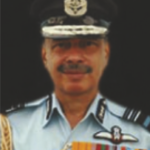
-
Air Marshal Bhushan Gokhale
(VSM, AVSM, PVSM retd)
Vice Chief of Air Staff at Air Headquarters
Visiting Member of UPSC
-

-
Shri. Dr. Bhooshan Kelkar
MS and Ph.D. In Artificial Intelligence,
Former ‘Country Manager’
for university relations of IBM India
-

-
Lt. Gen. Dr. D B Shekatkar(retd)
Chaired Committee of Experts
(Shekatkar Committee on Military Reforms)
-

-
Shri. Jagjit Singh Arya
Indian Defense Account Services (IDAS) – 1986
Former Dy. Director general of Meteorology
Dept under Min. Of Science and Technology
-
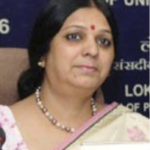
-
Smt. Kalpana Sharma
Former Additional Secretary to Loksabha,
Parliament Of India
38 Years of experience working in Loksabha
-
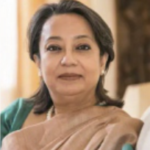
-
Riva Ganguly Das
IFS – 1986
Former High Commissioner of India to Bangladesh
Former secretary of MEA(East)
-
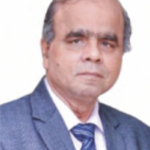
-
Shri. Umesh Chandra Sarangi
(Ex. IAS, 1977 Batch)
Fomer Additional Chief Secretary (Home) Of Maharashtra,
Former Chairman Of NABARD (2007-2010)
We have designed our Course Structure keeping all these principles as the core of our efforts.
Considering all these details of the UPSC exam, Chanakya Mandal Pariwar, with its 26+ years of its proven legacy of success, has designed this course for you all. The course structure in Chanakya Mandal Pariwar is created to make student empowered to face this challenging exam. We at Chanakya Mandal Pariwar believe that even though there is no one-size-fits-all approach, there are some common principles which are crucial for success. Some of these important principles are as given below:
It will cover the syllabus of all three stages of the exam. Batches for optional subjects to be enrolled separately. Format of the course will be in module wise manner, wherein there will be total 300+ sessions of 2 hours each covering following different modules
Introductory Sessions for overview of UPSC, Preparation strategy, etc
Following subject are covered extensively in our lectures
- Polity (Including E-gov. & Dev. Governance)
- History (Including Modern & World)
- Ancient, Medieval History and Art and Culture
- Economy
- Geography
- Environment
- Society and Sociology
- Science and Technology
- International relations
- Internal Security, Cyber Security
- Ethics, Integrity and Aptitude
- Essay Writing Techniques
- Current Affairs by Dharmadhikari Sir
- Current Affairs by other faculties
- CSAT
- English (Only Qualifying Subject)
- Marathi (Qualifying Subject)
Extra Activities:
- Special Sessions of serving and retired officers, academicians, Toppers Interaction
- Prelims and Mains Test Series and discussion of these tests will be conducted separately. Adhisthan Malika, Sankalp Diwas
- Regular counselling sessions for to discuss issues, challenges, strategy with Senior faculties.
- Every year Chanakya Mandal Pariwar organizes intensive residential study camps for preparation of UPSC and MPSC exams.
- Outstanding and eminent personalities and experts from respective fields have a dialogue with the students regarding subjects of study.
- Throughout the ‘Abhyas Mahotsav’, arrangements of food for all participants are made at the place of the camp.
- Some sessions are combined for all students and these are mainly conducted in Marathi.
This Year, Abhyas Mahotsav was conducted on 12,13 and 14th Feb 2023.
This year, eminent personalities like, Shri. Avinash Dharmadhikari Sir, Shri. Vaibhav Nimbalkar Sir, Pasha Patel Sir, Bhushan Kelkar Sir, Anil Nagane Sir and our Senior Faculties guided the students on various topics.
- It is an unique initiative by Chanakya Mandal Pariwar
- A group of students will be assigned to an expert faculty who will be available for consultation on phone and in person for study plan, regular monitoring of students’ progress, academic performance, and any other issue.
- Students can ask their questions and our faculties will show you a way forward with their years of experience and expertise.
- Regular counseling sessions for to discuss issues, challenges, strategy with Senior Faculties are organized
- Chanakya Mandal Pariwar provides a study kit to our students who take admission for UPSC Comprehensive Course.
- It contains some important books and a bag for UPSC Civil Services Exam.
This Study Kit Contains:
- Nava Vijaypath by Avinash Dharmadhikari
- 75 Soneri Pane by Avinash Dharmadhikari
- Indian Art and Culture by Nitin Singhania
- A Brief History of Modern India by Rajiv Ahir
- Certificate Physical and Human Geography by GC Leong Oxford
- Student Atlas for India Indian Polity by M Laxmikant
- Indian Economy by Nitin Singhania
- Environment by PMFIAS Decode Ethics by Mudit Jain
- Anthropology
- Political Science
- History
- Public Administration
- Sociology
- Geography
In these batches, comprehensive guidance for the both the subjects is given by our expert team of faculties. Also, regular answer writing practice, frequent discussions with toppers, officers, subject matter experts are arranged. (Note: If you have other optional subject, please contact us on phone or at office to check whether we are offering guidance for that subject too.)
Our Interview Guidance Initiative is very well renowned amongst all candidates for its resemblance with UPSC in terms of setting, expertise, depth and variety of questions, professionalism, etc. The detailed written and oral feedback has been known to exactly pin point the strengths and weaknesses helping students excel on ‘The Day’ of actual UPSC interview. Marks given by in mock interview by our panel head are also known to closely resemble the marks actually awarded by UPSC in actual interview.
Every year, our UPSC Comprehensive Batch is available in offline format only. Since last 2 year, we have also started online batches. This online platform will allow the students to experience the near-classroom experience wherein, students will be able to interact with faculty members during live sessions.
- We take Module-wise Sessions
- A special Mentorship Program
- Free Mains Guidance Post-Prelims
- Free Interview Guidance post-mains
- Current Affairs Sessions of Dharmadhikari Sir
- Topper’s Talk
- Special sessions by officers
- Access to Study Room
- Soft Copies of Monthly Magazine
- Regular one to one interaction with Faculties
- Personal Counselling
- Prelims and Mains Test Series
- Chanakya Mandal Pariwar’s Flagship Course i.e HEARTBEAT is a prelims special course
- Every year, this course is conducted from the month of January to April end. This Batch has one of the highest success ratios in all over the India
Features of the Batch:
- Complete Revision of Syllabus
- Guidance of Most Experienced Faculties
- Extensive study for 90 days
- Daily MCQ Solving
- Focus is given on Developing the Logic behind solving a MCQ
- Focus on MCQ Solving Techniques
- Test Series is included
Lecture Timing:
- In the morning
- Conducted in Offline + Online Format
- Offline at Warje only
UPSC COMPREHENSIVE COURSE (MEDIUM ENGLISH)
Batch Starting From 16 August 2023
- Holistic Guidance of Prelims+Mains+Interview
- Notes prepared by our Expert faculties
- Weekly Interactive sessions with Shri. Avinash Dharmadhikari sir
- Exam oriented approach
- Focus on MCQ solving
- Focus on optional subjects
- Monthly current affairs magazine
- Focus on mains answer writing
UPSC Course Kit
- Nava Vijaypath by Avinash Dharmadhikari Sir
- Indian Art and Culture by Nitin Singhania Sir
- A Brief History of Modern India by Rajiv Ahir Sir (Spectrum)
- Certificate Physical and Human Geography by GC Leong Sir
- Oxford Student Atlas for India
- Indian Polity by M Laxmikant Sir
- Indian Economy – Nitin Singhanaia Sir
- Environment by PMFIAS
- Decode Ethics by Mudit Jain Sir
- UPSC Prelims Analysis
- 75 Soneri Pane – Avinash Dharmadhikari Sir
 CTS
CTS  Donate
Donate 